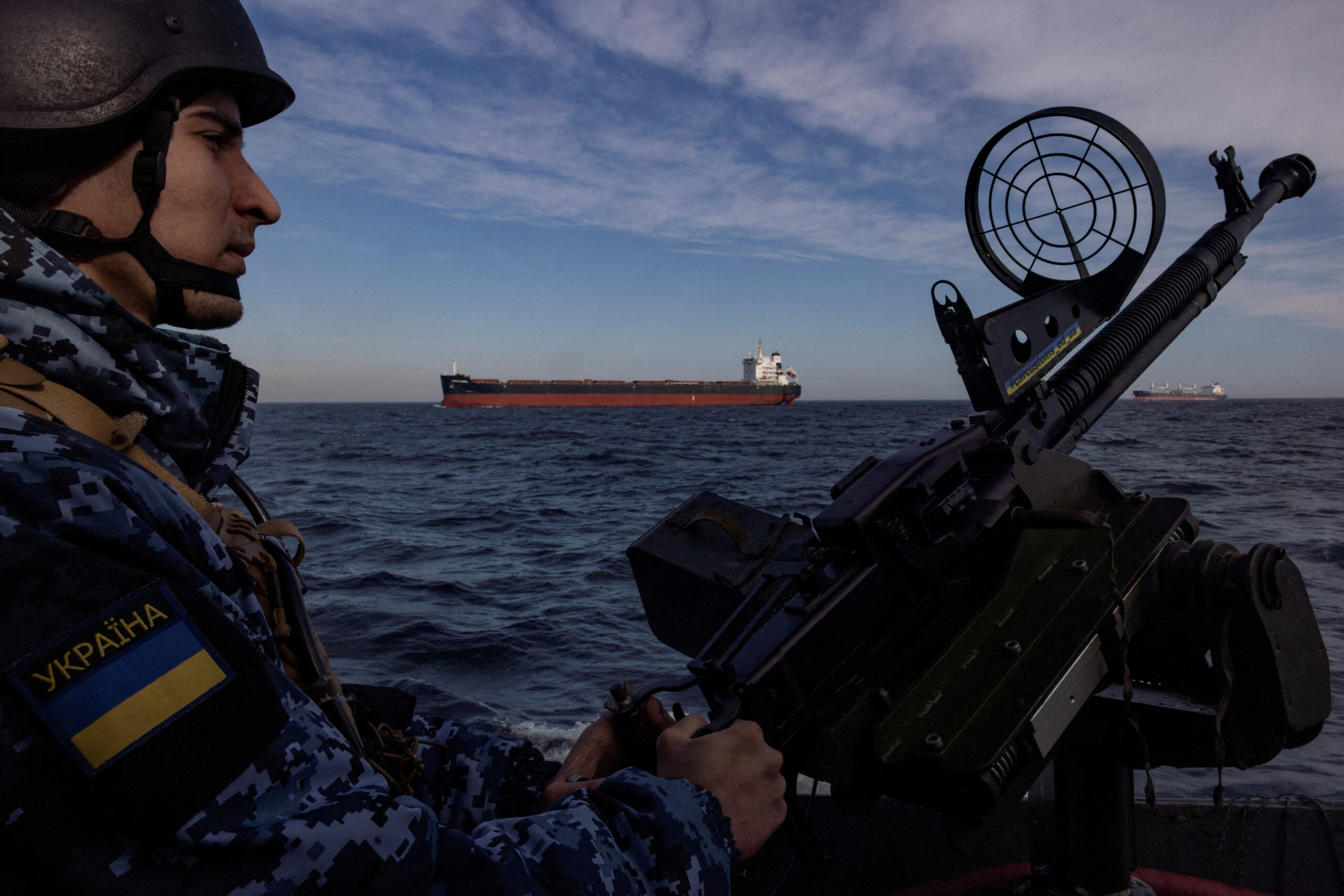With Donald Trump’s election win fueling fresh speculation over the prospects for a negotiated settlement to the Russo-Ukrainian War, Russian President Vladimir Putin has once again underlined his insistence on Ukrainian neutrality. “If there is no neutrality, it is difficult to imagine any good-neighborly relations between Russia and Ukraine,” he commented on November 7 in Sochi.
This is nothing new. Since the eve of the full-scale invasion, the Kremlin has been consistent in its calls for permanent Ukrainian neutrality. Neutral status was a key condition set out by the Kremlin during the abortive peace talks that took place in the first weeks of the war. It once again featured prominently when Putin laid out an updated peace proposal in June 2024.
Many in the international community regard Putin’s push for a neutral Ukraine as by far his most reasonable demand. Indeed, some have even accused NATO of provoking the current war by expanding into Russia’s traditional sphere of influence since 1991 and deepening cooperation with Ukraine. They argue that if Ukraine can be kept in geopolitical no-man’s-land, Russia will be placated.
Such thinking is likely to feature prominently as the debate continues to unfold in the coming months over the terms of a future peace deal. While Trump has yet to outline his plans for a possible settlement, unconfirmed reports suggest that a twenty-year freeze on Ukraine’s NATO membership aspirations is under consideration. This would be a costly blunder. Imposing neutrality on Ukraine will not bring about a durable peace in Europe. On the contrary, it would leave Ukraine at Putin’s mercy and set the stage for a new Russian invasion.
Ukrainians have already learned the hard way that neutrality does not protect them against Russian aggression. The country officially embraced non-aligned status during the 2010-2014 presidency of Viktor Yanukovych, but this didn’t prevent Moscow from seeking to reassert full control over Ukraine. Initially, Russia’s efforts focused on orchestrating Ukraine’s economic reintegration through membership of the Moscow-led Eurasian Economic Union. When this sparked a popular backlash that led to the fall of the Yanukovych regime, Putin opted to use force and began the military invasion of Ukraine.
Ever since the start of Russia’s attack on Ukraine in spring 2014, Putin has sought to justify Russian aggression by pointing to the looming danger of Ukrainian NATO membership. In reality, however, Ukraine has never looked like progressing toward the distant goal of joining the alliance. For the past decade, NATO leaders have refused to provide Kyiv with an invitation and have instead limited themselves to vague talk of Ukraine’s “irreversible” path toward future membership. Putin is well aware of this, but has chosen to wildly exaggerate Ukraine’s NATO prospects in order to strengthen his own bogus justifications.
Putin’s complaints regarding NATO enlargement are equally dubious. Indeed, his own actions since early 2022 indicate that Putin himself does not actually believe that the alliance poses a genuine security threat to Russia. Instead, he merely exploits the NATO issue as a convenient smokescreen for Russia’s expansionist foreign policy.
Tellingly, when Finland and Sweden responded to the 2022 Russian invasion of Ukraine by announcing plans to abandon decades of neutrality and join NATO, Putin was quick to declare that Russia had “no problem” with the move. This evident indifference was particularly striking, given that Finnish NATO membership has more than doubled Russia’s NATO border while Sweden’s accession has transformed the Baltic Sea into a NATO lake. Over the past two-and-a-half years, Putin has continued to demonstrate his almost complete lack of concern over NATO’s Nordic enlargement by withdrawing the vast majority of Russian troops from the Finnish border and leaving the area largely undefended.
Putin obviously understands perfectly well that NATO is not a threat to Russia itself, and sees no need to guard against a NATO invasion that he knows will never come. While Putin’s resentment over the expanding NATO presence on his borders is real enough, he only really objects when the alliance prevents Russia from bullying its neighbors. In other words, Putin’s opposition to Ukraine’s NATO aspirations has nothing to do with legitimate security concerns. Instead, it confirms that his ultimate goal is the destruction of Ukrainian statehood.
Eurasia Center events

For years, Putin has made no secret of his belief that the emergence of an independent Ukraine is an historical mistake and a symbol of modern Russia’s retreat from empire. He has repeatedly claimed that Ukraine is not a “real country,” and is fond of declaring that Ukrainians are actually Russians (“one people”). In July 2021, Putin even published an entire essay arguing against the legitimacy of an independent Ukrainian state.
Since the start of the full-scale invasion, it has become increasingly apparent that Putin’s ultimate goal is not Ukraine’s neutrality but Ukraine’s destruction. The Kremlin propaganda machine has portrayed Ukraine as an intolerable “anti-Russia,” and has promoted the idea that Ukraine’s continued existence is incompatible with Russian security. Meanwhile, Putin has compared his invasion to eighteenth century Russian ruler Peter the Great’s imperial conquests, and has repeatedly claimed to be “returning” historically Russian lands.
Putin’s imperialistic outbursts must be taken seriously. Throughout occupied Ukraine, his soldiers and administrators are already imposing a reign of terror that directly echoes the criminal logic of his imperial fantasies. Millions have been displaced, with thousands more simply vanishing into a vast network of camps and prisons. Those who remain face policies of relentless Russification and the suppression of all things Ukrainian. Adults must accept Russian citizenship in order to access basic services, while children are forced to undergo indoctrination in schools teaching a new Kremlin curriculum.
The crimes currently taking place in Russian-occupied Ukraine are a clear indication of what awaits the rest of the country if Putin succeeds. Despite suffering multiple military setbacks, he remains fully committed to his maximalist goals of ending Ukrainian independence and erasing Ukrainian identity.
Furthermore, since 2022 Putin has demonstrated that he is prepared to wait as long as it takes in order to overcome Ukrainian resistance, and is ready to pay almost any price to achieve his imperial ambitions. Imposing neutrality on Ukraine in such circumstances would be akin to condemning the country to a slow but certain death.
Any peace process that fails to provide Ukraine with credible long-term security guarantees is doomed to fail. Acquiescing to Putin’s demands for a neutral Ukraine may provide some short-term relief from the menace of an expansionist Russia, but this would ultimately lead to more war and the likely collapse of the current global security order. There is simply no plausible argument for insisting on Ukrainian neutrality other than a desire to leave the country defenseless and at Russia’s mercy.
Peace will only come once Putin has finally been forced to accept Ukraine’s right to exist as an independent country and as a member of the democratic world. Naturally, this includes the right to choose security alliances. It is absurd to prioritize Russia’s insincere security concerns over Ukraine’s very real fears of national annihilation. Instead, if serious negotiations do begin in the coming months, Ukrainian security must be the number one priority. Until Ukraine is secure, Europe will remain insecure and the threat of Russian imperialism will continue to loom over the continent.
Mykola Bielieskov is a research fellow at the National Institute for Strategic Studies and a senior analyst at Ukrainian NGO “Come Back Alive.” The views expressed in this article are the author’s personal position and do not reflect the opinions or views of NISS or Come Back Alive.
The views expressed in UkraineAlert are solely those of the authors and do not necessarily reflect the views of the , its staff, or its supporters.

The Eurasia Center’s mission is to enhance transatlantic cooperation in promoting stability, democratic values and prosperity in Eurasia, from Eastern Europe and Turkey in the West to the Caucasus, Russia and Central Asia in the East.
Image: A serviceman of Ukraine’s coast guard mans a gun on a patrol boat as a cargo ship passes by in the Black Sea, amid Russia’s attack on Ukraine. February 7, 2024. (REUTERS/Thomas Peter)









